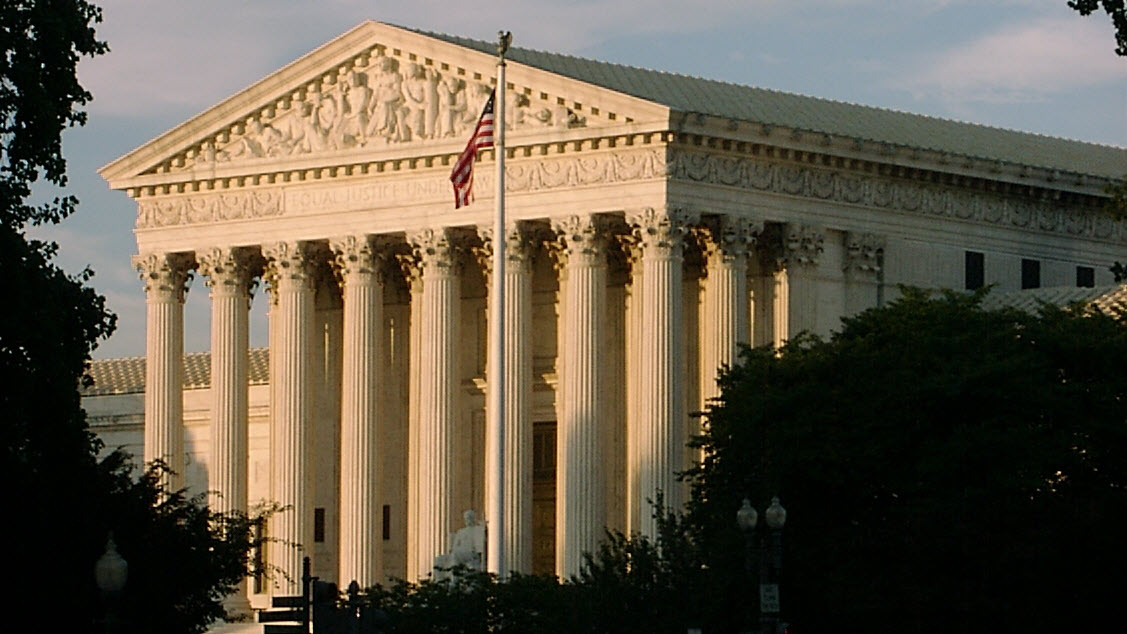Supreme Court Upholds Telemarketing Law

The smarter way to stay on top of the multichannel video marketplace. Sign up below.
You are now subscribed
Your newsletter sign-up was successful
Dealing the Trump Justice Department a loss, the Supreme Court has upheld the Telephone Consumer Protection Act (TCPA), affirming an appeals court decision that the government cannot exempt calls to collect government debts from the TCPA, which was added to the Communications Act by Congress in 1991 to combat unwanted telemarketing calls.
Related: Supremes Hear Robocall Case
The U.S. Court of Appeals for the Fourth Circuit had found that the TCPA with its government-debt exception (which was added in 2015) was an unconstitutional content-based speech restriction. But it also followed traditional severability principles, which means the underlying bill could stand while the government debt-collection exception fell.
Related: FCC to Robocalls: No More Warnings
The Trump Administration had challenged that appeals court decision, arguing that there was a compelling government interest in collecting the debts. Such a compelling government interest is one of the tests a speech regulation has to pass if it is to clear the "strict scrutiny" bar for regulation of speech.
The Justice Department argued that the government debt-collection exemption favored not one type of speech but one type of economic activity, but that did not pass muster.
"Six Members of the Court today conclude that Congress has impermissibly favored debt-collection speech over political and other speech, in violation of the First Amendment," said Justice Brett Kavanaugh, who delivered the decision.
The smarter way to stay on top of the multichannel video marketplace. Sign up below.
Three of the justices would have upheld the government debt exception--Justices Stephen Breyer, Ruth Bader Ginsburg, Elena Kagan, and Justice Sonya Sotomayor would have found the exception unconstitutional even under intermediate scrutiny.
“The Court rightly found that government debt collectors aren’t entitled to a special exception to the TCPA’s ban on robocalling..." said Sen. Ed Markey (D-Mass.), one of the original authors of the TCPA, and Rep. Anna Eshoo (D-Calif.). They have been trying to repeal the government debt exception legislatively. “The Court’s decision followed commonsense principles: Americans don’t want to be harassed by robocalls, and Congress has the authority to stop abusive calls.
"The case for the TCPA has only become clearer since it became law nearly thirty years ago, and members of Congress on both sides of the aisle continue to recognize that blocking these invasive calls is a national priority. Today’s decision preserves the TCPA’s ability to protect Americans from countless unwanted robocalls every year, every day, and indeed every hour and minute."
FCC Chairman Ajit Pai applauded the decision.
“The Telephone Consumer Protection Act has long shielded Americans from unwanted robocalls, but the Obama Administration in 2015 snuck in a carve-out for federal debt collectors," said the chairman. "I opposed that decision because, as I said at the time, the federal government should not bestow ‘regulatory largesse upon favored industries such as federal debt collectors,' and I called on Congress to reverse course.
“Thanks to the Supreme Court, that carve-out is no more. Today, the Court found that the last Administration’s attempt to create a special exemption for favored debt collectors was not only bad policy but unconstitutional. I am glad to hear that Americans, who are sick and tired of unwanted robocalls, will now get the relief from federal-debt-collector robocalls they have long deserved.”
“We applaud the Supreme Court for protecting consumers from robocalls. Whether through voice, text or email, it’s critical to protect consumers from unwanted messages and maintain the integrity of communication platforms for Americans," said CTIA senior VP Nick Ludlum.
Contributing editor John Eggerton has been an editor and/or writer on media regulation, legislation and policy for over four decades, including covering the FCC, FTC, Congress, the major media trade associations, and the federal courts. In addition to Multichannel News and Broadcasting + Cable, his work has appeared in Radio World, TV Technology, TV Fax, This Week in Consumer Electronics, Variety and the Encyclopedia Britannica.

